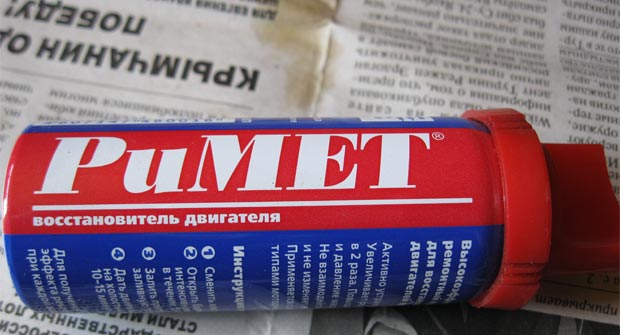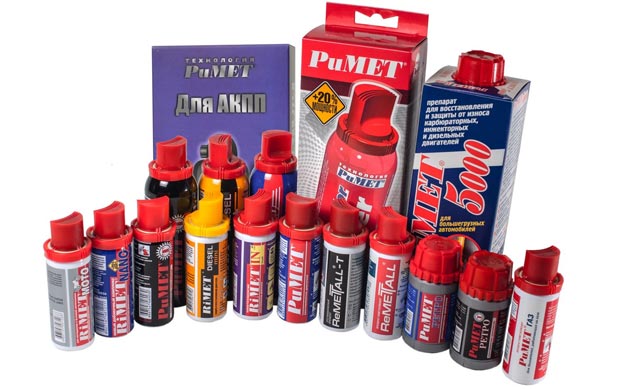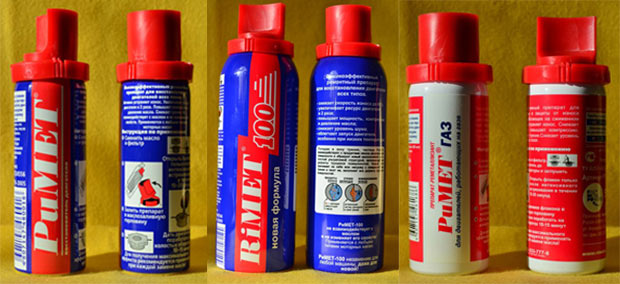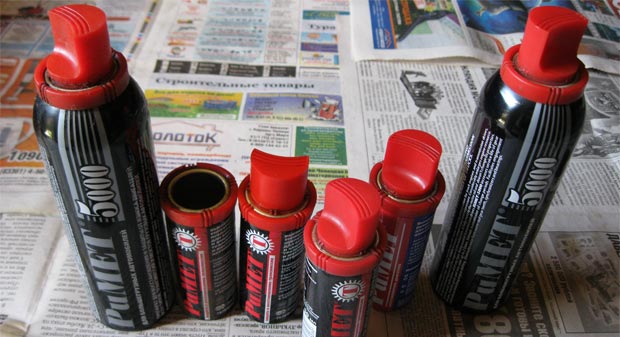
"RIMET". Engine treatment with domestic additives
Content
The composition and principle of action of the additive "RiMET"
The traditional compositions of "RiMET", which serve to extend the service life of a worn motor, are remetallizers according to their principle of action. That is, these additives restore worn and damaged surfaces of metal parts in loaded contact patches.
The composition of the RiMET additive is as follows:
- microparticles (1-2 mm in size) of copper, tin and antimony;
- surfactants to help metals stay suspended in the oil and reach their destinations successfully;
- carrier, usually neutral mineral oil.
The principle of operation of the additive is based on the simplest mechanism. Together with engine oil, substances circulate through the system. When it hits any roughness on the metal surface, the lattice of Cu-Sn-Sb (or just Cu-Sn for earlier versions of the additive) is fixed at this point. If this formation is not knocked down by a stronger metal (that is, it is in a recess, and there is no contact upon contact with the surface of the mating part), then its growth continues. This happens until the new structure fills the completely damaged area. Excess will be removed in the process by friction. In this case, the pressure created in the contact patch strengthens the formed layer.


On a specific example, we can consider a working ring-cylinder pair. After adding the additive to the oil, a scratch on the surface of the cylinder mirror will begin to be filled with microflakes from Cu-Sn-Sb metals. This will happen until the surface of the ring begins to knock down the excess. And the newly formed formation will harden under the pressure of the ring. Thus, the working surface will be partially and temporarily restored.


Scope and effect
The main field of application of RiMET additives is used engines. Today the company produces several formulations:
- "RiMET" is a classic, but outdated version.
- "RiMET 100" is an improved composition in which antimony is additionally used.
- "RiMET Gas" - for engines running on gas.
- "RiMET NANO" is a composition with a reduced fraction of metals, for "healing" even minor damage to all types of engines.
- "RiMET Diesel" for diesel engines.
There are a few more engine compounds, but they are less common.


The manufacturer promises the following positive effects after using these additives:
- equalization of compression in the cylinders;
- increased power;
- increase in oil pressure;
- decrease in production rate (up to 40%);
- lower fuel consumption (up to 4%);
- easy start;
- increasing the resource of the engine;
- reducing engine noise.
In practice, these effects are not as pronounced as the manufacturer describes. In some cases, the result is the opposite. More on that below.


Reviews car owners
Most motorists speak of RiMET additives for the engine either neutrally or positively. Rare negative reviews are associated with high expectations from the composition. After all, no additive will help a motor worn to the limit. And pouring into a new motor can do irreparable harm.
Car owners with noticeable frequency leave the following reviews:
- the additive significantly reduces the noise level, the engine runs softer;
- the compression in the cylinders levels off after a short run and lasts at least until the next oil change;
- the oil pressure light flashing at idle turns off and does not light up again for a long time.
Few drivers talk about increasing the life of the engine, its power or fuel economy. Usually subjective sensations are indicated, which may be unreliable. Because it is difficult to draw objective conclusions without detailed research.
It can be said that the RiMET remetallizer, like other similar compounds, like the Resurs additive, partially work. However, manufacturers' statements regarding such a radical impact on worn motors are clearly exaggerated.


Watch this video on YouTube
